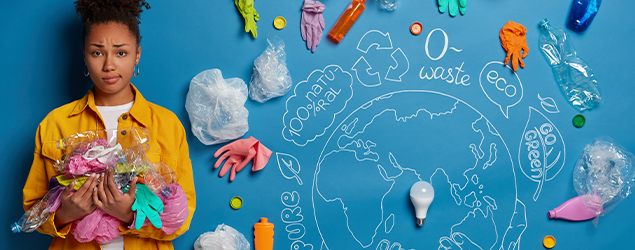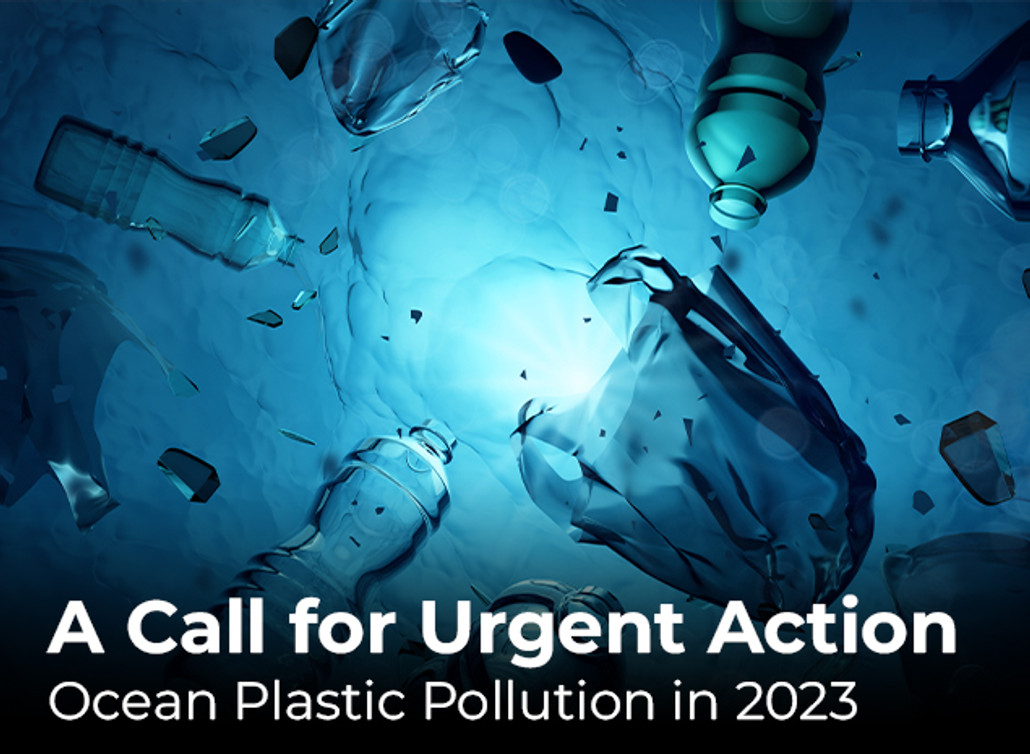Posted by Planet Pantry on 8th Sep 2023
Ocean Plastic Pollution in 2023: A Call for Urgent Action

The year 2023 marks a crucial period in the battle against ocean plastic pollution. Despite growing awareness and efforts to tackle this global crisis, the situation has reached alarming levels, with devastating consequences for marine ecosystems, human health, and the planet as a whole. As we stand at the precipice, it is imperative that we take immediate and decisive action to mitigate the impact of plastic waste on our oceans.
The Escalating Crisis:
In 2023, the volume of plastic waste in our oceans has reached an all-time high. The relentless production, consumption, and improper disposal of plastic have led to an estimated 150 million metric tons of plastic already contaminating our marine environments. This staggering figure is equivalent to dumping one garbage truck full of plastic into the ocean every minute.

Impact on Marine Life:
The consequences of ocean plastic pollution on marine life have been catastrophic. Countless marine species, from tiny plankton to majestic whales, are falling victim to entanglement, ingestion, and habitat destruction caused by plastic debris. Sea turtles mistake plastic bags for jellyfish, seabirds feed plastic fragments to their young, and coral reefs suffocate under the weight of accumulated waste. The ecological balance of our oceans is under grave threat.
Human Health at Risk:
Beyond the immediate environmental impacts, ocean plastic pollution poses a significant risk to human health. Microplastics, tiny particles resulting from the breakdown of larger plastic items, have permeated our oceans. These Microplastics enter the food chain, accumulating in fish and other seafood consumed by humans. Consequently, these particles find their way into our bodies, potentially causing long-term health issues and disrupting vital systems.
Innovation and Progress:
While the situation appears dire, there is hope on the horizon. Governments, organizations, and individuals have started recognizing the urgency of the issue, leading to increased research, innovative technologies, and collaborative efforts. Solutions such as biodegradable packaging, plastic waste collection systems, and recycling initiatives are being developed and implemented on a global scale. Furthermore, public awareness campaigns are helping to change behaviors and reduce plastic consumption.

Global Cooperation and Policy Changes:
Addressing ocean plastic pollution requires a united front and international cooperation. Countries worldwide are enacting legislation to ban single-use plastics, promote recycling, and encourage sustainable alternatives. The United Nations and other international bodies are working to establish guidelines and frameworks to tackle the issue comprehensively. By sharing knowledge, resources, and best practices, nations can collectively combat this pressing problem.
Individual Responsibility:
While systemic change is crucial, individual actions also play a pivotal role in combatting ocean plastic pollution. By making conscious choices to reduce, reuse, and recycle plastic, individuals can contribute to a significant reduction in waste. Supporting eco-friendly businesses, participating in local cleanup efforts, and advocating for change in our communities are additional ways individuals can make a positive impact.
The year 2023 is a critical moment in the fight against ocean plastic pollution. The escalating crisis demands immediate action from governments, industries, and individuals alike. By implementing effective policies, embracing innovative solutions, and fostering global cooperation, we can reverse the tide of plastic waste and restore the health and vitality of our oceans. Let us seize this opportunity to protect marine life, preserve our ecosystems, and secure a sustainable future for generations to come.



